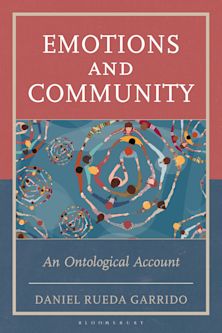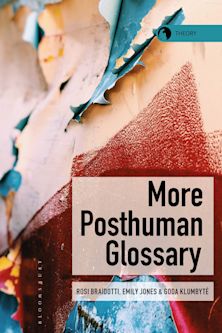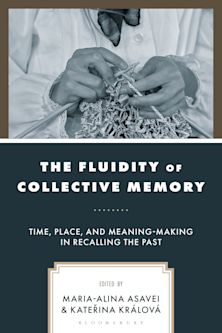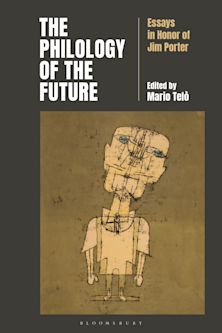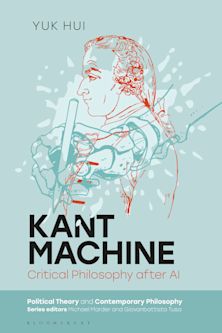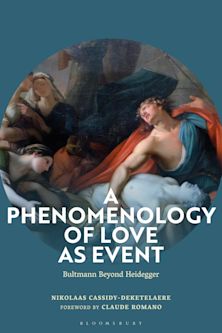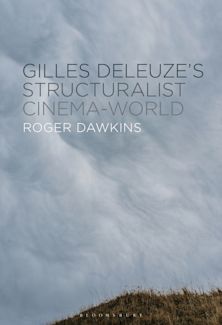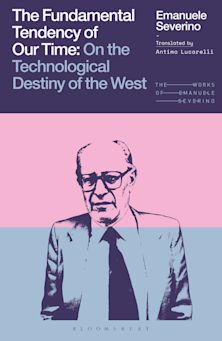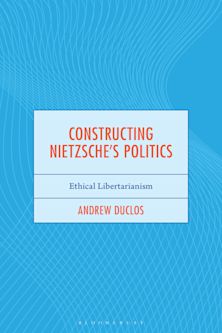- Home
- ACADEMIC
- Philosophy
- Continental Philosophy
- Adorno’s Rhinoceros
Adorno’s Rhinoceros
Art, Nature, Critique
Adorno’s Rhinoceros
Art, Nature, Critique
You must sign in to add this item to your wishlist. Please sign in or create an account
Description
Throughout his work, the philosopher Theodor W. Adorno repeatedly invokes the rhinoceros. Taking its cue from one of these passages in Aesthetic Theory, 'So a rhinoceros, the mute animal, seems to say: I am a rhinoceros', this book explores the life of this animal in Adorno's texts, and articulates the nuanced interconnections between art, nature and critique in his thought.
By thus illuminating key elements of Adorno's work, this volume reveals the invaluable contributions that this 'classical' thinker can make to our current reflections on the various pressing natural and political crises of our times.
Table of Contents
List of Illustrations
List of Contributors
1. Introduction: The enigma of the rhinoceros, Antonia Hofstätter, (University of Warwick, UK)
2. In the name of the rhinoceros: expression beyond human intention, Camilla Flodin (Uppsala University, Sweden)
3. The rhinoceros at the bottom of the sea: Adorno, Dürer and the silent eloquence of artworks, Antonia Hofstätter (University of Warwick, UK)
4. Just one line: reading T. W. Adorno on humans, artworks and animals, Lydia Goehr (Columbia University, USA)
5. The mute animal, Alexander García Düttmann (Universität der Künste, Berlin, Germany)
6. The speaking animal: on a metaphor of humanity, Sebastian Tränkle (Freie Universität, Germany)
7. The gaze of the rhinoceros and the 'it' of Aesthetic Theory, Daniel Steuer (Independent Scholar, Austria)
8. The muted animal, Daniel Herwitz (University of Michigan, USA)
9. Epilogue: On the actuality of Adorno's rhinoceros – extraction, extinction and dignity, Daniel Steuer (Independent Scholar, Austria)
Index
Product details

| Published | 27 Jan 2022 |
|---|---|
| Format | Ebook (PDF) |
| Edition | 1st |
| Extent | 216 |
| ISBN | 9781350177826 |
| Imprint | Bloomsbury Academic |
| Illustrations | 10 bw illus |
| Publisher | Bloomsbury Publishing |
About the contributors
Reviews
-
In these probing, eloquent, and sometimes lacerating essays, Adorno's continuing fascination with the rhinoceros is the occasion for commentary on his claim that art, at least now, emerges as the stand-in for an absent nature, for a nature facing extinction. A surprising and demanding addition to both Adorno studies, and human reflection on art and the approaching disaster.
J.M. Bernstein, University Distinguished Professor of Philosophy, The New School for Social Research, USA
-
Taking Adorno's enduring interest in the enigmatic rhinoceros as its starting point, this volume gives us a multi-faceted exploration of crucial dialectics in Adorno's thought, from the place of artworks in the dialectic of culture and nature to the distance between language and selfhood and the utopian promise in animals.
Shierry Weber Nicholsen, Psychoanalyst in private practice, USA
-
Adorno's Rhinoceros is a modern day bestiary of a single and singular animal, whose presence in art and culture stands in stark contrast to its imminent absence from the natural world. At once a marvelous collection of essays, and a collection of marvelous essays, each chapter has an intriguingly tight focus on one motif in Adorno's philosophy, and one line of his Aesthetic Theory. Yet the essays radiate into the diverse topics of 'dumb' animal nature, of the enigmatic nature of artworks and their muteness, and explore philosophical questions of selfhood, transcendence, metaphysics and secularization.
Gordon Finlayson, Professor of Social and Political Thought, University of Sussex, UK
-
Centring on the enigmatic image of the rhinoceros, this brilliant volume of essays by established and emerging scholars explores how Adorno's bestiary dialectically configures an anticipation of the as yet unrealized promise of culture as well as the memory trace of its catastrophic failure.
Samir Gandesha, Professor of Humanities and Director of the Institute for the Humanities, Simon Fraser University, Vancouver, Canada

ONLINE RESOURCES
Bloomsbury Collections
This book is available on Bloomsbury Collections where your library has access.












